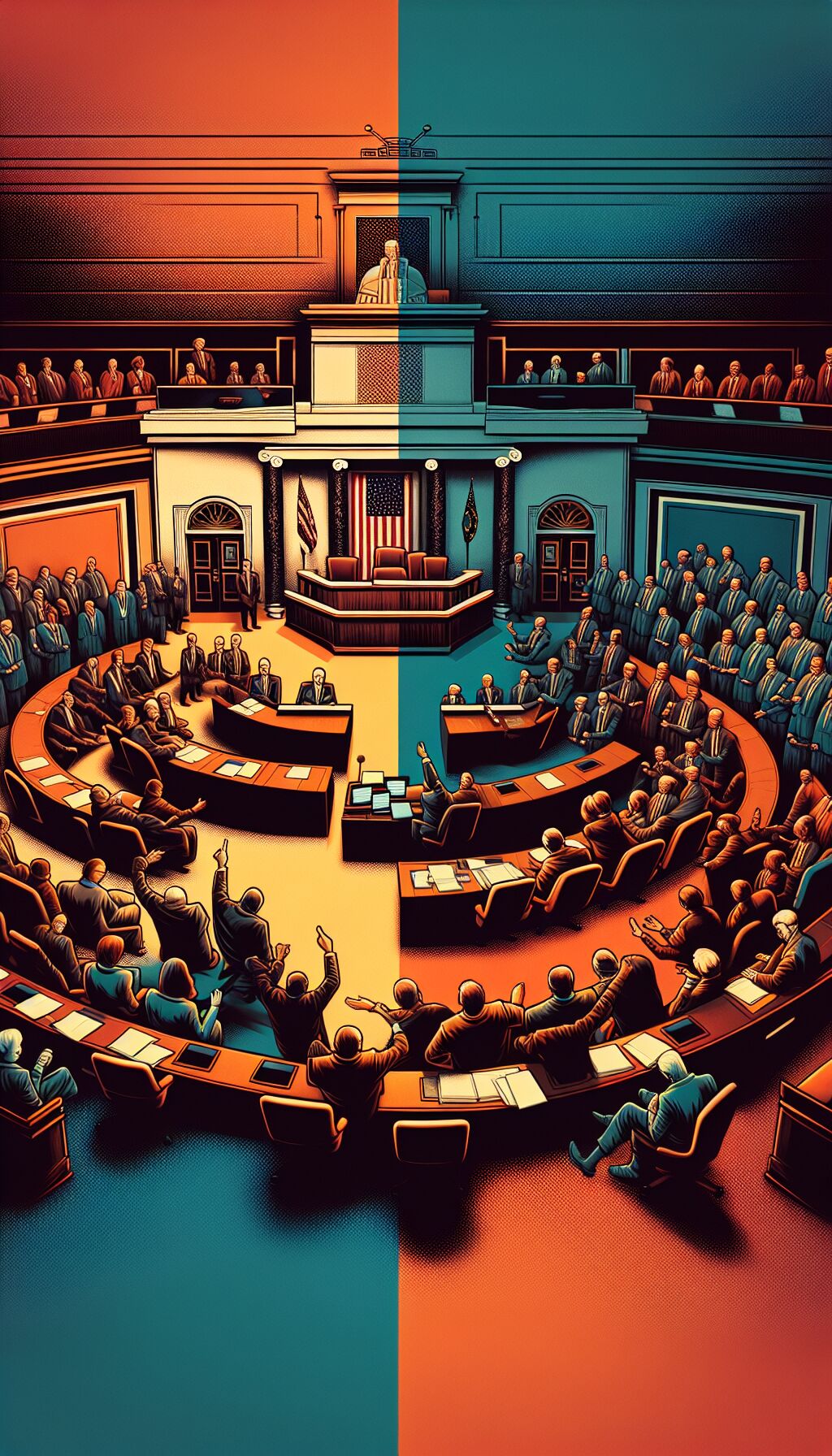Colorado Lawmakers Condemn Trump’s Jan. 6 Pardons Amid Budget Crisis
On a day marked by pressing fiscal issues, Colorado lawmakers devoted significant time to a controversial resolution aimed at condemning former President Donald Trump’s pardons of individuals involved in the January 6 Capitol riots.
Budget Shortfall Overshadowed by Political Resolutions
Despite a looming .2 billion budget shortfall for the 2025-26 fiscal year, the Colorado state House of Representatives spent hours discussing the Democrat-led resolution. The focus on such measures has drawn ire from Republican lawmakers, who argue that the state should prioritize immediate concerns such as rising crime rates and the cost of living.
Republican minority leader Rep. Rose Pugliese criticized her Democratic colleagues, stating, “With skyrocketing costs, a billion budget deficit, rising crime and an affordability crisis pushing families to the brink, it is appalling that the majority is more focused on passing meaningless, partisan resolutions instead of addressing the real concerns of Coloradans.”
Pugliese characterized the resolution as “political theater,” aimed at creating division rather than delivering tangible results for the communities they represent.
Resolution Passes Amid Party Lines
The measure ultimately passed with a vote of 41-23, adhering to strict party lines in the Democrat-controlled assembly. Notably, Rep. Lisa Feret, a Democrat, broke ranks and voted against the resolution.
During the proceedings, Republican lawmakers made their dissent known by turning their chairs away from the assembly speaker, a symbolic act of protest against what they deemed an unnecessary legislative focus.
Republicans’ Response and Public Outcry
Republican state Rep. Jarvis Caldwell criticized the resolution on social media, asserting, “To Hell with your concerns about cost of living, crime, and other important issues. Democrats are running another January 6th resolution. We turned our chairs in protest, and now we’re having a debate about it.” This sentiment was echoed by fellow Republican Rep. Ryan Gonzalez, who lamented that the Democrats were not addressing the pressing issues presented by their constituents.
Further amplifying the Republicans’ dissatisfaction, the Colorado House GOP X account noted, “not one life in Colorado will be saved by this resolution,” and added that Democrats could be focusing their efforts on addressing the significant budget deficit instead of engaging in “political games.”
Citing the absurdity of the situation, U.S. Rep. Lauren Boebert, a Republican who represents Colorado’s 4th Congressional District, tweeted, “Will Colorado Dems playing partisan politics lower the cost of eggs?”
Sponsorship and Passage of the Resolution
The resolution condemning Trump’s pardons was introduced by state Democratic senators Nick Hinrichsen and Matt Ball, receiving passage in the state Senate earlier this month by a 21-12 vote along party lines. The House version was sponsored by Democratic representatives Sean Camacho and Michael Carter, who succinctly articulated the sentiments behind the resolution: condemnation of Trump’s pardons and the firing of FBI agents investigating the January 6 events.
Democrats React to Republican Dissent
In response to Republican opposition, state Rep. Steven Woodrow, a Democrat, took to social media platform Bluesky Social, asserting, “Colorado House Republicans have now launched a full-throated defense of the January 6th rioters.” He characterized the GOP’s stance as an attempt to turn their backs on America, emphasizing that their actions were being closely observed by the public.
Another notable Democratic voice, state Rep. Lorena Garcia, also addressed the dissent on Bluesky Social, stating, “While this resolution will pass, today is a wake up call to all Coloradans who believe in freedom, that the Republican Party is not a party that believes in freedom. It is the party of authoritarianism, it’s the party of fascism.”
Trump’s Pardons and Their Implications
It’s critical to note that all individuals involved in the January 6 incidents—more than 1,500—were pardoned by Trump as one of his first executive actions when he took office. This controversial decision continues to reverberate throughout political discussions in various states, including Colorado.
The ongoing debate surrounding the pardons reflects the palpable division within the state—and the nation—over the events of that day and its aftermath. As Colorado grapples with significant budgetary constraints and other pressing issues, the focus on symbolic resolutions could be seen as a distraction from the work that many constituents expect their lawmakers to address.










